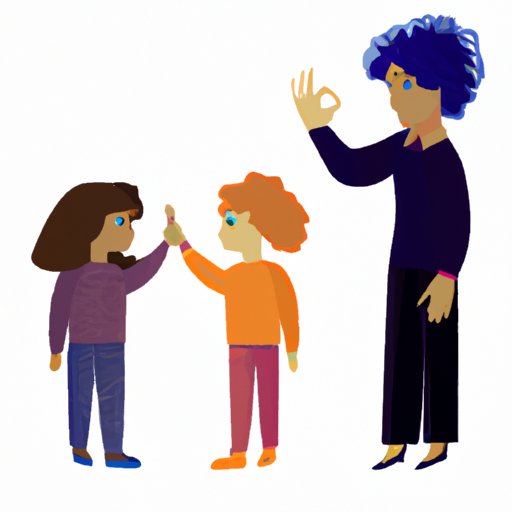Introduction
Effective communication is key to building strong relationships with our kids. Being able to listen, communicate and understand a child’s point of view is important to their emotional development and overall well-being. This article will explore strategies on how to talk so kids will listen, providing helpful tips and techniques for effective communication.
Importance of Active Listening
Active listening is an important aspect of communication with children. It allows parents to connect with their child, makes them feel valued and heard. Here are some tips for active listening when communicating with children:
- Make eye contact with the child
- Ask open-ended questions
- Rephrase what the child says to reflect understanding
- Give your full attention to the child
By practicing active listening, parents can create a safe and open environment for their child to share their thoughts and feelings. It’s important to make your child feel that they are being heard and understood.
Strategies for Positive Communication
Positive reinforcement is important because it helps to create a sense of validation for the child. By using positive language, parents can help build a child’s self-esteem. Additionally, setting boundaries is important for parents to establish expectations and consequences for actions. Here are some strategies for positive communication:
- Use positive language to empower and uplift your child
- Provide clear boundaries and expectations
- Use appropriate tone of voice and body language
- Listen to understand rather than listening to respond
By establishing clear boundaries, using positive language, and practicing active listening, parents can create a positive communication environment for their child.
Impact of Words
Words are powerful and can impact a child’s self-esteem. Negative language can damage a child’s confidence and self-worth. On the other hand, positive words go a long way in building a child’s self-esteem and providing encouragement. Here are some tips for using positive language:
- Avoid negative language and criticism
- Use encouraging and empowering words
- Acknowledge your child’s effort and progress
By using positive language, parents can create a safe and validating environment that encourages their child’s growth and development.
Building a Strong Relationship
Building a strong relationship with your child is the foundation for effective communication. Spending quality time with your child and taking interest in their lives are important strategies to building a strong relationship. Here are some tips for building a strong relationship:
- Spend quality time with your child
- Be interested in their lives
- Establish trust with your child
- Understand their interests and hobbies
By building a strong relationship with your child, parents can create a safe and nurturing environment that encourages healthy communication.
Role of Empathy
Empathy is a key aspect of effective communication. It allows parents to understand their child’s thoughts, feelings, and needs. Parents can show empathy by acknowledging their child’s emotions and validating their experiences. Here are some tips for showing empathy:
- Listen actively to your child
- Acknowledge their feelings
- Try to see things from their point of view
- Be supportive and encouraging
By showing empathy, parents can create a nurturing and validating environment that promotes healthy communication.
Conclusion
Effective communication with our children is critical to their emotional development and overall well-being. By actively listening, using positive language, building strong relationships, and showing empathy, parents can create a positive communication environment that encourages healthy communication. Remember, effective communication is a teachable and learnable skill, and it is never too late to start practicing these techniques with your children. By doing so, you will be building a stronger relationship with your child and creating an environment of mutual respect and understanding.
